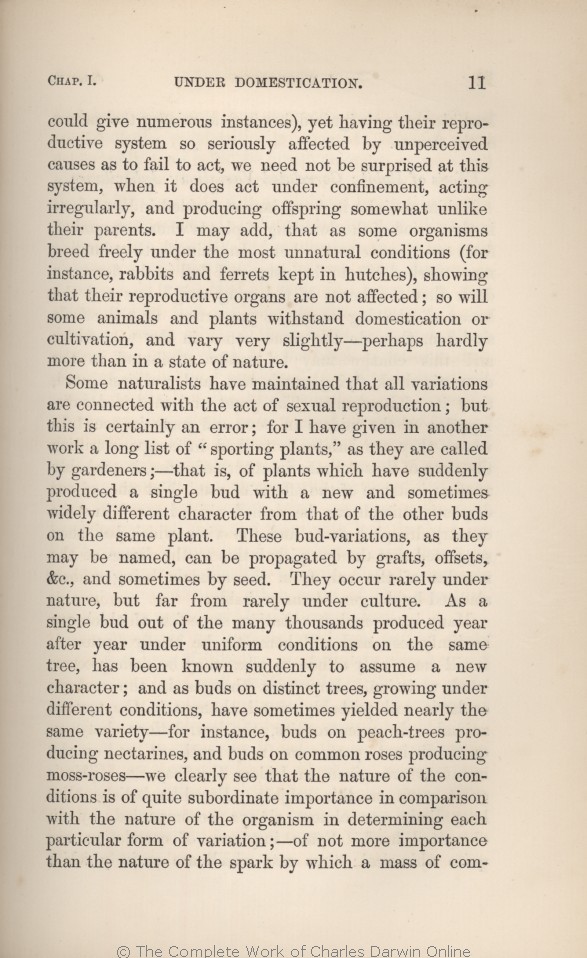I could give numerous instances), yet having their reproductive system so seriously affected by unperceived causes as to fail
to act, | to act, 1869 1872 | | in acting, 1859 1860 1861 1866 |
| ..... 1869 1872 | | not quite 1859 1860 1861 1866 |
| irregularly, 1869 1872 | | regularly, 1859 1860 1861 1866 |
| somewhat unlike 1869 1872 |
| not perfectly like 1859 1860 1861 1866 |
| parents. 1860 1861 1866 1869 1872 | | parents 1859 |
| ..... 1860 1861 1866 1869 1872 | | or 1859 |
| ..... 1860 1861 1866 1869 1872 | | variable. 1859 |
| affected; 1869 | | easily affected; 1872 |
|
|
Some naturalists have maintained that all variations are connected with the act of sexual reproduction; but this is certainly an error; for I have given in another work a long list of "sporting
plants," | plants," 1869 | | plants;" 1872 |
| bud-variations, 1869 | | bud variations, 1872 |
| far from rarely 1869 |
| are far from rare 1872 |
| thousands 1869 | | thousands, 1872 |
| under uniform conditions on the same tree, 1869 |
| on the same tree under uniform conditions, 1872 |
|









